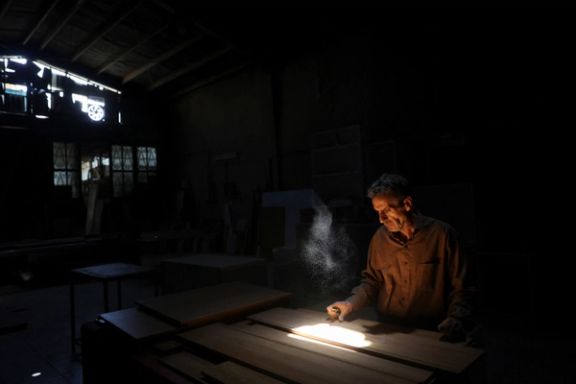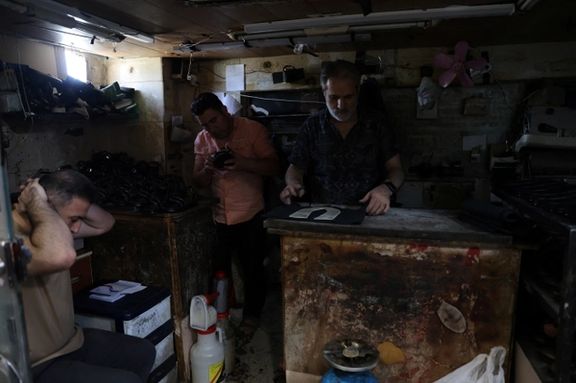‘They’ve turned the clock back centuries’: Iran power cuts mar daily life

Rolling power cuts across Iran continue to mar daily life and livelihoods, according to firsthand accounts by everyday people submitted to Iran International.

Rolling power cuts across Iran continue to mar daily life and livelihoods, according to firsthand accounts by everyday people submitted to Iran International.
From scorched household appliances to destroyed crops and collapsing businesses, Iranians describe a national infrastructure crisis they say is pushing them into ruin.
Below are excerpts from voice messages sent to Iran International’s platform for citizen testimonies.
'How are we supposed to survive?'
A farmer from Semnan province in northeastern Iran sent a passionate voice message describing how repeated blackouts have destroyed his equipment and ruined his harvests.
“My irrigation pump has burned out twice,” he said. “Where am I supposed to find 800 million tomans ($9,670)? I’m a village farmer. We’re being crushed.”
The average monthly income in Iran is about $150.
He said blackouts come every five or six hours, killing crops and rendering farming impossible. “They’ve destroyed agriculture, the backbone of our economy. They’ve turned the clock back 1,400 years.”
Expressing broader political anger, he added, “As long as we sit and do nothing, they’ll keep dragging us backward—to the Qajar era, even the Safavid. They aren’t here to help us. They’re here to humiliate us.”
Businesses collapsing: 'I had to buy used fridges again'
A small supermarket owner shared how frequent power cuts ruined expensive appliances—even with surge protectors.
“My dairy fridge and ice cream freezer burned out. I had to replace them with second-hand ones,” he said.
Even those whose businesses are not directly affected by outages expressed sorrow. “I don’t work with electricity, but when I see shopkeepers sitting helplessly outside their stores, it breaks my heart,” one person said. “When will we wake up?”

'God help the sick': Medical risks from power loss
Another voice message warned of life-threatening consequences from blackouts.
“Our bread dough spoils. Appliances burn out. But the real danger is for families who rely on oxygen machines,” the speaker said. “When the power cuts, they might lose a loved one.”
She called the blackouts a clear sign of state failure: “These blackouts prove the regime’s total incompetence. Only real change can fix this. God willing, the people will rise.”
Wrecked appliances
Many described a constant cycle of broken appliances and unbearable heat.
“I burn out a cooler motor every week,” said one angry resident.
Others reported fridges and air conditioners failing due to voltage spikes. “This isn’t just about heat. It’s engineered poverty. Engineered unemployment. Engineered misery,” another added.
A voice message captured the mood in one bitter list: “No jobs. No water. No power. No future. Even morality is breaking down. And it’s all by design.”
Priorities
Multiple speakers criticized the government’s priorities—pursuing military ambitions while ordinary Iranians suffer without basic utilities.
“They’ve been chasing nuclear power for 30 years,” one man said. “But they can’t provide a single kilowatt of electricity for the people.”
The comments come as Iran and the United States remain locked in faltering nuclear negotiations, with apparent mixed signals from Washington fueling uncertainty in Tehran.
He praised Iran’s truck drivers for their recent strikes and urged others to resist. “We have to stop watching each other suffer in silence. This is a war. And it’s being waged against us.”
Truck drivers are now on the 13th day of a nationwide strike, with actions reported in over 150 cities and towns despite growing government pressure.